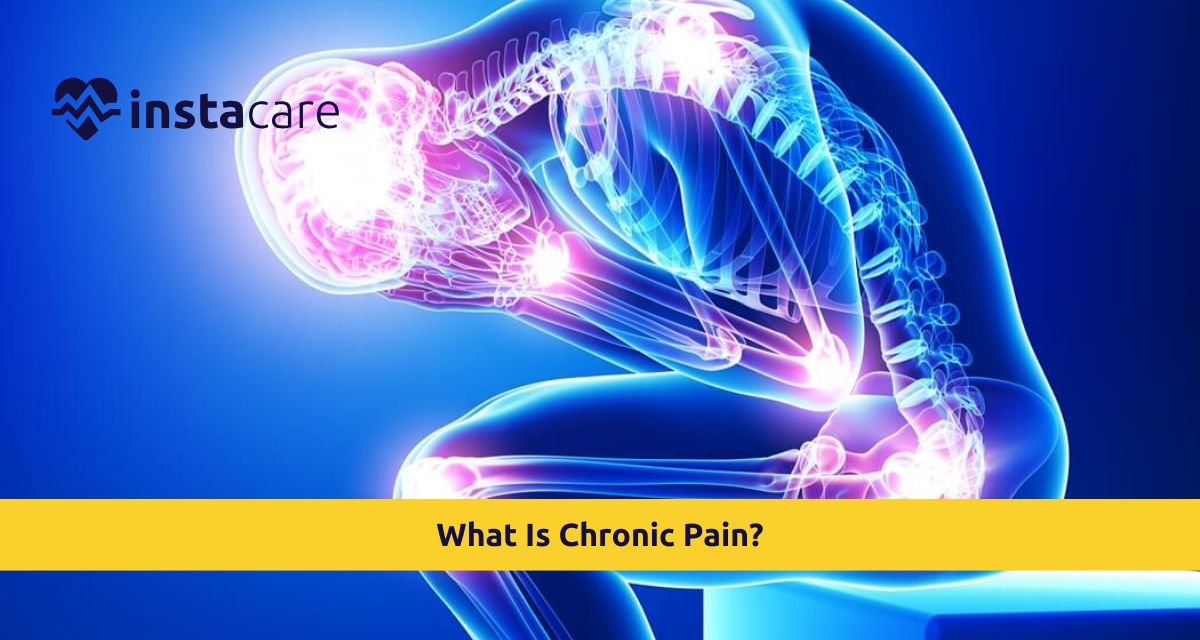The condition of chronic pain persists beyond periods of weeks and extends into months and can last for numerous years. Pain that lasts for weeks or years constitutes the most advanced and persistent pain condition. Pain both reduces daily quality measures and sets up new barriers to regular activities while weakening physical and psychological health conditions.
Chronic pain endures past healing of an injury or illness, while acute pain serves initially as the warning indicator of these issues. People experiencing chronic pain face various mental, social, and physical obstacles resulting from the chronic pain condition regardless of its root cause, making it impossible to live a fulfilled existence.
Chronic Pain Symptoms
The signs of chronic pain vary substantially based on the causes that produce it. Continuous aching with sharp pain or burning or stabbing sensations compose the main Symptoms of Chronic Pain. Individuals who suffer from chronic pain experience their symptoms to shift rapidly between different intensities.
- Uninterrupted or sporadic pain
- Soreness due to contact or temperature change
- Stiffness and muscle tightness
- Tiredness and deformed sleep
- Difficulty in concentrating due to pain
Chronic Pain Causes
There are many causes of chronic pain. To name a few, the most common are:
- Arthritis and similar joint disorders
- Incomplete heals from injury
- Diseases such as fibromyalgia
- Nerve damage or neuropathic pain
- Back problems, herniated discs included
In many cases, it's a so-called idiopathic chronic pain exact cause isn't found.
Management of Chronic Pain
Chronic Pain Management must be comprehensive. It calls for not just medical interventions but also lifestyle modifications. Furthermore, regular monitoring and adapting to the changing nature of pain are important for effective management implementation.
- Regular appointments with healthcare providers
- Smart goal setting regarding painlessing
- Tracking and patterning pain triggers
Medications against Chronic Pain
Different types of Medications for Chronic Pain may assist in alleviating it. Among these are ibuprofen and other medications found OTC and prescriptions that are opioids, although these can result in severe side effects. Antidepressants and anticonvulsants are widely used in patients suffering from nerve pain.
How Stress Affects Chronic Pain?
How Stress Affects Chronic Pain. During stress, the body releases cortisol, which adds unwanted muscle tension and sensitivity to pain. Additionally, anxiety and depression, default reactions to chronic pain, increase the intensity of physical symptoms.
- Increased muscle tension induced by stress
- Heightened levels of inflammation
- Heightened sensitivity to pain inducements
How to Manage Life With Chronic Pain?
The experience of chronic pain forces people to handle physical alongside emotional demands. Establishing an adaptive way of thinking stands as the vital approach instead of pure pain-conquering strategies. Chronic pain management demands creating a pain plan along with finding coping strategies while obtaining necessary support so individuals can function effectively every day.
- Undergo Alternative Therapies for Chronic Pain such as counseling
- Find and join any support groups for chronic pain suffering
- Strive for minor lifestyle changes that can gradually lead to a major impact
Best Exercise For Chronic Pain
Best Exercises for Chronic Pain Relief by reducing stiffness and improving flexibility. Certain exercises for chronic pain relief include:
- Water-based exercises that lessen the load on the joints
- Stretching and gentle yoga for improving flexibility and maintaining balance
- Strength training to provide support to the muscles
View More: How To Get Rid Of Heart Pain At Home
Some Natural Remedies for Chronic Pain
Some people prefer Natural Remedies for Chronic Pain; these are often used in conjunction with standard treatment options. Some natural remedies used include:
- Natural supplements like turmeric and ginger
- Acupuncture and acupressure
- Aromatherapy utilizing essential oils like lavender or peppermint
Relationship Of Chronic Pain With Various Important Aspects
Chronic Pain and Inflammation
Chronic Pain and Inflammation often coexist, which, like any other biological response, can be prolonged in time. The swelling process has the power to harm affected tissues as well as intensify discomfort levels. The body condition of rheumatoid arthritis, along with inflammatory bowel disease, serves as ample examples that cause persistent pain by elevating inflammation levels.
Chronic Pain and Mental Health
Those who ask How to Live with Chronic Pain usually encounter mental health problems, including depression, anxiety, and emotional exhaustion. The unending physical strain can induce feelings of helplessness and frustration. Both the physical and mental spheres must be addressed for overall health.
- Depression and anxiety often coexist with chronic pain
- Cognitive-behavioural therapy (CBT) serves to right the mental health issues alongside physical pain
- Intervention may also include treating both Chronic Pain and Mental Health and physical symptoms with medication
Chronic Pain and Sleep
Chronic pain very much interrupts sleep. Impingement of discomfort prevents an otherwise restful position to sleep in, and flare-ups of pain usually happen during the wee hours. Sleep deprivation contributes to an enhanced perception of pain, maintaining this cycle.
- Having some sort of a bedtime routine aids good sleep hygiene
- Pillows or mattresses used for support
- Mindfulness or relaxation approaches for falling asleep
Diet and Chronic Pain
There is increased awareness of the Chronic Pain and Diet Connection. Some diets aggravate chronic pain, while others appease therapy through the inhibition of inflammatory processes. Diet plays a major role in the management of chronic pain, balancing its Macros with fruits, vegetables, and anti-inflammatory-like
omega-3 fatty acids.
- Anti-inflammatory foods: Fish and greens
- Processed foods and sugar
- Muscle cramps are discouraged through good hydration.
Some Contrarytal Therapies for Chronic Pain
Chronic Pain and Physical Therapy
Chronic Pain and Physical Therapy an essential aspects of its management. Therapy consists of specially designed exercises to promote mobility, build muscles, and relieve discomfort. This kind of assistance through an individualized therapy plan can further help with the management of chronic pain through motion patterns taught by a professional.
- Stretching for flexibility
- Strengthening exercises for support
- Manual therapy for pain relief
Besides conventional therapies, alternative ones bring relief for some chronic pain patients. These include:
- Chiropractic adjustments for correct spine alignment
- Hypnotherapy to change the perception of pain
- Biofeedback to control stress and muscle tension
Conclusion
Chronic pain is thus a multidimensional problem that requires more than a unitary or simple approach to management. Living with chronic pain has its attendant difficulties, but one can invariably benefit from understanding the many symptoms, the various causes, and the possible avenues for the treatment of chronic pain. Chronic pain is tantamount to medication, physical therapy, and lifestyle changes. A successful lifestyle with chronic pain should focus particularly on health, both physical and mental.
Please book an appointment with the
best Physiotherapist in Lahore, Karachi, Islamabad, and all major cities of Pakistan through
InstaCare, or call our helpline at 03171777509 to find a verified doctor for your disease.












